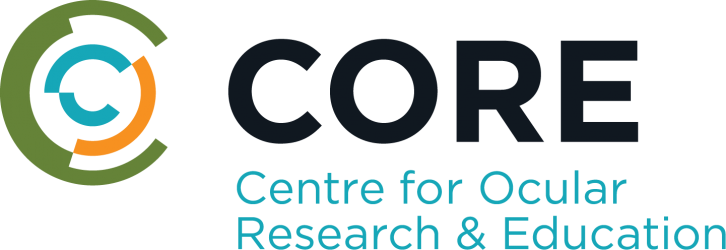WATERLOO, Ontario, Feb 29, 2024—Advancements in and increased fitting of scleral and corneo-scleral lenses, plus resurgent interest surrounding orthokeratology for managing myopia control, sets the stage for Issue 76 of Contact Lens Update. Published by the Centre for Ocular Research & Education (CORE), the bi-monthly publication is available at no charge by visiting ContactLensUpdate.com.
“Specialty lenses play a vital role in addressing diverse visual needs and managing myopia. Keeping abreast of the latest research is essential for evidence-based practice, ensuring that patients receive optimal care aligned with current understanding,” said Daddi Fadel, DOptom, FSLS, FBCLA, FAAO, FIACLE, a clinical scientist at CORE and author of the issue’s opening editorial.
“By integrating insights from different fields and staying informed about emerging techniques and technologies, practitioners can achieve successful lens fittings that address immediate concerns and contribute to long-term ocular health preservation. Interdisciplinary collaboration further enhances the effectiveness of treatment plans, allowing for a comprehensive approach that considers various aspects of ocular health and—paramount to provide customized care that meets each patient’s unique needs.”
Dr. Fadel is a pioneer of modern lens designs, editor-in-chief of the Journal of Contact Lens Research & Science, and author of several peer-reviewed articles and books. Her editorial presents comprehensive highlights from the 2024 Global Specialty Lens Symposium (GSLS). These include discussions on the inflammatory nature of contact lens wear, the Ed Bennett-Nathan Efron debate concerning the viability of rigid lenses, masterclasses and workshops on scleral lenses and myopia management, and emerging technologies presentations.
Sharon Qiu is a residency-trained optometrist pursuing a full-time Ph.D. in Vision Science at CORE while also serving as a part-time clinical supervisor for 4th-year optometry interns at the University of Waterloo Contact Lens and Myopia Control Clinic. She authors the feature article that explores techniques for practitioners to evaluate the performance of scleral lenses, and the instruments that are most suitable for this purpose.
Greg DeNaeyer, an optometrist at Arena Eye Surgeons in Delaware, Ohio, with an emphasis on specialty contact lenses and a contributor to several professional publications, shares his expertise in the form of a clinical insight. The article reviews three of the most common scleral lens fitting complications—poor wettability, midday fogging, and corneal edema—and suggests methods to enhance the process and performance, such as using modern materials, coatings, and alternative treatments.
The conference highlight is shared by David Hammond, a researcher specializing in myopia control at CooperVision’s Advanced Development Center in Pleasanton, Calif. His award-winning poster examined MiSight 1 day’s effectiveness in controlling myopia progression over six years, comparing progression between control and treatment cohorts, including a group whose treatment was initiated in year four. The study found that MiSight 1 day effectively controlled myopia progression, especially benefiting faster-progressing eyes, with consistent proportional treatment effects that contradict predictions of a random growth model.
In addition to a complete archive of back issues, ContactLensUpdate.com offers a resource library that provides no-cost professional tools, patient resources, images and video. It also houses complimentary technical training videos produced by International Association of Contact Lens Educators, plus an industry glossary. Industry professionals can access the latest issue directly from ContactLensUpdate.com or quickly sign up for email receipt of future issues.
The publication receives support from the educational arms of Alcon, CooperVision, and Johnson & Johnson Vision.
# # #
About the Centre for Ocular Research & Education (CORE)
The Centre for Ocular Research & Education (CORE) was established in 1988 at the University of Waterloo’s School of Optometry & Vision Science. Over the next three decades, the organization evolved from a three-person operation into a thriving hub of basic and applied research, collaborating with sponsors, agencies and academia on advanced biosciences, clinical research and education. Its uncompromising independence and results of the highest quality have been at the heart of many of the most prominent advances in eye health. Today, its approximately 50-person team serves a range of ophthalmic sectors, including medical devices, ocular pharmaceuticals, digital technology and others, with a focus on the anterior segment. For more information, please visit core.uwaterloo.ca.
MEDIA CONTACTS
Lyndon Jones, Director, CORE
+1.519.888.4065 or lwjones@uwaterloo.ca





